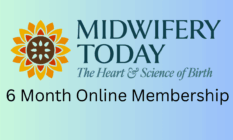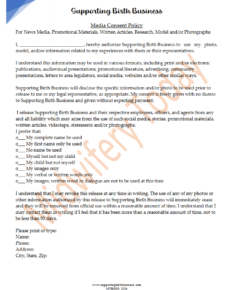
Do We Need Midwives?
This question was the title of a book intended for the British public (Odent 2017). In the United Kingdom, everybody is familiar with the term midwife. Traditionally, midwives were considered vital and respectable persons. There is even a Royal College of Midwives.
If you are already an online member login here.
About Author: Michel Odent
 Michel Odent, MD, has been in charge of the surgical unit and the maternity unit at the Pithiviers (France) state hospital (1962–1985) and is the founder of the Primal Health Research Centre (London). He is the author of the first articles in the medical literature about the initiation of lactation during the hour following birth and of the first article about use of birthing pools (The Lancet 1983). He created the Primal Health Research database. He is the author of 15 books published in 22 languages. His 2015 book, titled Do We Need Midwives?, is followed by an addendum titled Will Humanity Survive Medicine? Co-author of five academic books, he is also a contributing editor to Midwifery Today magazine.
Michel Odent, MD, has been in charge of the surgical unit and the maternity unit at the Pithiviers (France) state hospital (1962–1985) and is the founder of the Primal Health Research Centre (London). He is the author of the first articles in the medical literature about the initiation of lactation during the hour following birth and of the first article about use of birthing pools (The Lancet 1983). He created the Primal Health Research database. He is the author of 15 books published in 22 languages. His 2015 book, titled Do We Need Midwives?, is followed by an addendum titled Will Humanity Survive Medicine? Co-author of five academic books, he is also a contributing editor to Midwifery Today magazine.
His approach has been featured in eminent medical journals such as The Lancet and in TV documentaries such as the BBC film Birth Reborn. After his hospital career he practiced homebirths. As a researcher Michel Odent founded the Primal Health Research Center in London, England, which focuses on the long-term consequences of early experiences. An overview of the Primal Health Research data bank www.primalhealthresearch.com demonstrates how health is shaped during the primal period (from conception until the first birthday). The research also suggests that the way we are born has long-term consequences for sociability, aggressiveness—in other words, for our capacity to love. Michel Odent has developed a pre-conception program (the “accordion method”) that minimizes the polluting effects of synthetic fat-soluble chemicals, such as dioxins and PCBs, during pregnancy and breastfeeding. His other research interests are the nonspecific long-term effects of early multiple vaccinations. Visit Michel Odent’s website at www.wombecology.com/. For further information on Michel Odent, his books and the Primal Health Research Center, visit www.primalhealthresearch.com. Learn about the Paramana Doula Course by Michel Odent and Liliana Lammers, an experienced doula, at www.paramanadoula.com. To view Michel Odent’s responses to questions on the Mothering magazine site, see www.mothering.com/sections/experts/odent-archive.html In addition to approximately 50 scientific papers, Odent has published 15 books in 23 languages. His books demonstrate his artistry in turning traditional questions around: “How do we develop good health?” instead of “How do we prevent disease?” or “How do we develop the capacity to love?” instead of “How do we prevent violence?” Michel Odent is the author of the first article in the medical literature about the use of birthing pools (The Lancet 1983), of the first article about the initiation of lactation during the hour following birth, and of the first article applying the “Gate Control Theory of Pain” to obstetrics. He is the author of 12 books published in 22 languages. After his hospital career he practiced homebirths. Odent’s 21st-century books (The Scientification of Love, The Farmer and the Obstetrician and The Caesarean) may be regarded as a trilogy. They raise urgent questions about the future of our civilizations. Other books by Michel Odent:
- The Birth of Homo, the Marine Chimpanzee
- Birth Reborn
- Entering the World: The De-Medicalization of Childbirth
- The Nature of Birth and Breastfeeding
- We Are All Water Babies
Photo by Serge A McCabe
View all posts by Michel Odent




















